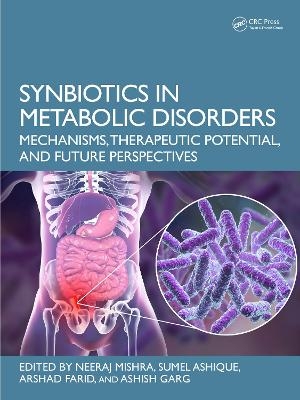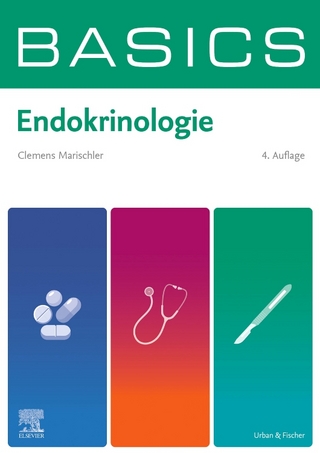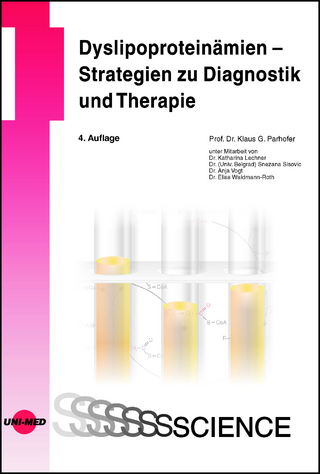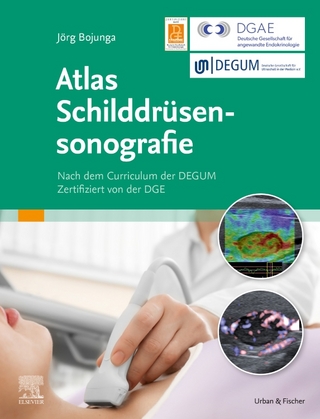
Synbiotics in Metabolic Disorders
CRC Press (Verlag)
978-1-032-70241-4 (ISBN)
- Noch nicht erschienen (ca. August 2025)
- Versandkostenfrei innerhalb Deutschlands
- Auch auf Rechnung
- Verfügbarkeit in der Filiale vor Ort prüfen
- Artikel merken
This book explores the potential role of prebiotics, probiotics, and synbiotics in managing various metabolic disorders, chronic diseases, and metabolic syndromes. The initial chapter provides an overview of metabolic disorders, including their classification, symptoms, and underlying causes. Additionally, the chapter discusses the intricate signaling pathways and mechanisms through which prebiotics, probiotics, and synbiotics interact with the human body in relation to type-2 diabetes, obesity, Phenylketonuria, and Hemochromatosis. Additionally, the book highlights the potential impact of probiotics and synbiotics on oxidative stress, inflammation, lipid metabolism, and blood pressure. Furthermore, this book focuses on the gut-brain axis and how synbiotics may influence neurotransmitter metabolism. With an emphasis on the gut-microbiota axis, this book presents a compelling narrative that explores the rationality behind synbiotic use and offers a glimpse into future perspectives for managing metabolic disorders effectively. This book is intended for researchers in the fields of nutraceuticals, nanomedicine, endocrinology, nutrition, gastroenterology, and metabolic medicine who are working in the field of probiotics, prebiotics, and symbiotics for the treatment of metabolic disorders.
Dr. Neeraj Mishra has been working as a Professor at Amity Institute of Pharmacy, Gwalior, since July 2019. He has around 20 years of teaching and research experience. He has more than 100 publications of international and national repute on recent concepts of novel drug delivery systems, oral delivery of synbiotics, localized drug delivery, and targeted and controlled drug delivery of nanocarriers and microparticles for the treatment of breast, colon, and neurodegenerative disorders. He has also edited 10 books and authored 25 book chapters. He has been granted three international patents and two Indian patents. Dr. Mishra is the recipient of the “Distinguished Professor Award” 2019 from DST-NSTMIS, SPAICS, Indore, and M.P. in September 2019. Dr. Mishra has also received the “Outstanding Scientist Award '' 2020, 6th International Scientist Awards on Engineering, Science, and Medicine, 20–21 June 2020, Chennai, India. Dr. Mishra has received the “Distinguished Professor Award '' 2021 from the Indian Pharmaceutical Association, MP State Branch, Indore. Dr. Mishra has received the “Best Academician Award” in the Indian Pharmacy Graduate Association, M.P. State International Conference held on May 6, 2023, at DAVV Auditorium, Indore, India. Dr. Sumel Ashique has been working as an Assistant Professor at the Department of Pharmaceutical Sciences, Bengal College of Pharmaceutical Sciences & Research, Durgapur 713212, West Bengal, India. He has 3.5 years of teaching experience and has published more than 50 research studies and review articles in internationally and nationally accredited, reputed journals. He has been working in targeted drug delivery, nanotechnology, and gut microbiome. He has also been granted 5 patents from IP, and Australia and has authored more than 20 book chapters. He has edited 5 books under CRC Press, Springer, Wiley, and Taylor-Francis Publisher. Dr. Arshad Farid is a distinguished academic and researcher with a prolific career spanning over 15 years in teaching and research. He is currently serving as an Assistant Professor in the Gomal Center of Biochemistry and Biotechnology at Gomal University, Pakistan. He completed his Ph.D. in Biotechnology from the Centre of Biotechnology and Microbiology (COBAM), University of Peshawar, Pakistan. His remarkable achievements have garnered him international recognition, as evidenced by his selection for the British Council-Charles Wallace Fellowship program for the academic year 2022-2023. In 2007, he was also awarded a prestigious scholarship to the University of Glasgow, UK, funded by the Higher Education Commission (HEC) of Pakistan. He has authored or co-authored more than 70 research papers and has been granted nine patents. Dr. Ashish Garg obtained a B. Pharm. in 2011 and a M. Pharm. in 2013 from Guru Ramdas Khalsa Institute of Science and Technology, Pharmacy, Jabalpur, M.P., India. He has pursued his Ph.D. from SRK University, M.P. He has over 10 years of experience in both teaching and research. He has authored more than 100 research and review articles published in national and international journals of high repute. Additionally, he has edited ten books and been awarded three patents and one design patent. He is presently working as an Associate Professor in the Department of Pharmaceutics at Guru Ramdas Khalsa Institute of Science and Technology, Jabalpur, Madhya Pradesh, India.
Chapter 1. An introduction on metabolic disorders. Chapter 2. Targeting Signaling Pathway & Mechanism of Prebiotics, Probiotics and Synbiotics to Manage Metabolic Disorders. Chapter 3. Potential Role of Probiotics, Prebiotics and Synbiotics in Management of Metabolic Syndrome and Chronic Metabolic Disease. Chapter 4. Synbiotics & Gut Micro flora: Mechanisms and Therapeutic. Chapter 5. Exploring Gut Microbiota as Therapeutic Target to maintain Metabolic Health. Chapter 6. Role of Synbiotic Supplements in the Treatment and Prevention of Obesity. Chapter 7. Therapeutic Potential of Gut Microbiota in Metabolic Disorders. Chapter 8. The Impact of probiotic and synbiotic supplementation on oxidative stress and inflammation. Chapter 9. Correlation and Successive Role of Synbiotics to Manage Blood Pressure. Chapter 10. Synbiotics: A novel paradigm for Phenylketonuria management by targeting gut-microbiota and gut-brain axis. Chapter 11. Role of synbiotic intake in Hemochromatosis Management. Chapter 12. Correlation Between Synbiotic supplements and Lipid Metabolism: A Novel Strategy to Counterattack Metabolic Disorders. Chapter 13. Probiotics, Prebiotics, and Postbiotics on Metabolic Diseases Targeting Gut Microbiota. Chapter 14. Impact of Bacterial metabolites on gut environment to manage metabolic disorders. Chapter 15. The Potential Role of Prebiotics, Probiotics, and Synbiotics in Cancer Prevention and Therapy. Chapter 16. Key Regulatory Aspects of Prebiotics, Probiotics, and Synbiotics in management of metabolic disorders. Chapter 17. Synbiotics: Present Status and Future Perspectives to Control Metabolic Disorders. Chapter 18. Role of Synbiotics in Managing Metabolic Disorders: A Conclusion.
| Erscheint lt. Verlag | 29.8.2025 |
|---|---|
| Zusatzinfo | 20 Tables, black and white; 36 Line drawings, color; 36 Illustrations, black and white |
| Verlagsort | London |
| Sprache | englisch |
| Maße | 210 x 280 mm |
| Themenwelt | Medizinische Fachgebiete ► Innere Medizin ► Endokrinologie |
| Naturwissenschaften ► Biologie | |
| Technik ► Lebensmitteltechnologie | |
| ISBN-10 | 1-032-70241-9 / 1032702419 |
| ISBN-13 | 978-1-032-70241-4 / 9781032702414 |
| Zustand | Neuware |
| Informationen gemäß Produktsicherheitsverordnung (GPSR) | |
| Haben Sie eine Frage zum Produkt? |
aus dem Bereich


